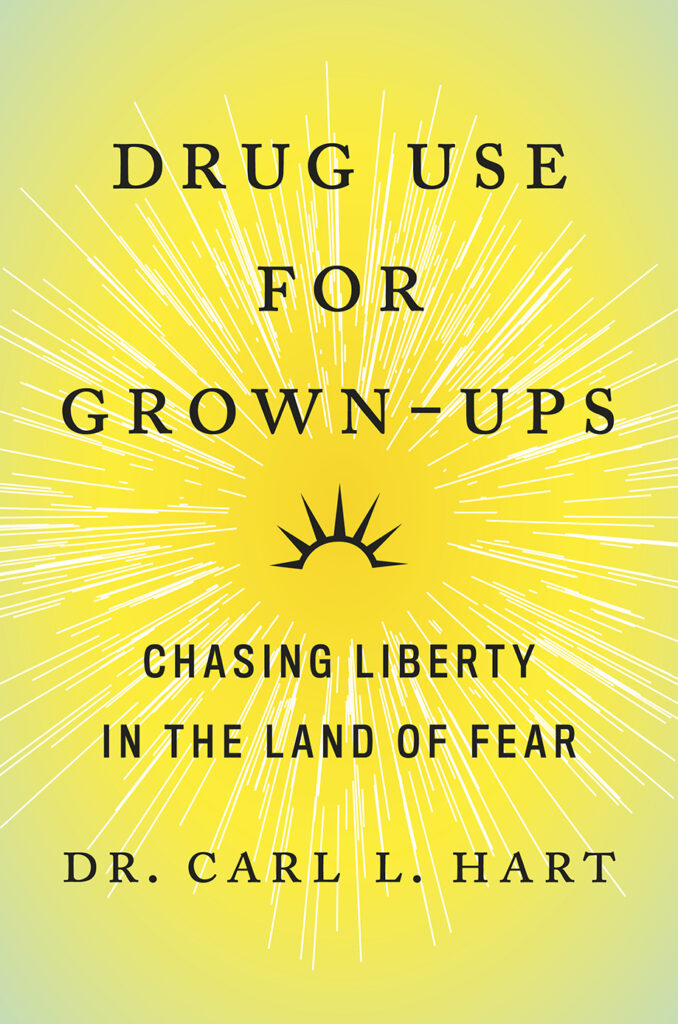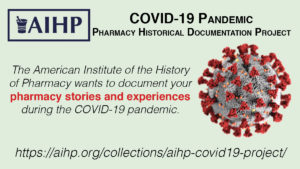This post is from Points, the joint blog of AIHP and the Alcohol and Drugs History Society. Points publishes original reflections about the history of drugs, medicines, alcohol, pharmacy, and their allied fields.
Dr. Carl Hart’s timely Drugs for Grown-ups: Chasing Liberty in the Land of Fear attempts to ignite a shift in our collective consciousness—much like the psychoactive substances he chronicles. Credentialed academics and other elites tend to deny using drugs, or, if they want to pass as authentic for political reasons, they might admit to a few youthful indiscretions (e.g., then-candidate Barack Obama’s “inhaling was the point” comment in 2007).
Defying this taboo, Hart, Chair of the Department of Psychology at Columbia University, owns up to his affection for an expansive medicine chest. He reveals dabbling in amphetamines, discloses his use of the unfairly-maligned drug heroin, and discusses sampling 1990s club drug—and soon-to-be FDA approved medication—MDMA, along with other more obscure compounds like 2C-B, which was popularized by virtuoso, chemist, and psychonaut Alexander Shulgin.
Hart’s self-doctoring is reminiscent of nineteenth-century medical ethics, embodied by such titans of the time as William Halstead and Sigmund Freud. His self-prescribing bridges the gap between his knowledge and his experience, which helps him better understand subjects visiting his Columbia University lab. Drugs also filtered into his other extracurricular activities, figuring into adventures with his wife and enhancing their relationship and strengthening their marriage.
Who Are Drug Users?
Hart considers himself the rule not the exception in terms of drug use. Drug users are not zombies, he emphasizes; they are not the flesh-eating monsters sometimes depicted on highway billboards accompanied by inane anti-drug slogans. Drug users are not unwashed psychos or crime aficionados who inexplicably love doing evil. No, most drug users are typical, normal, average Americans, gainfully employed and living undetected—maybe you or your neighbor. And that’s okay.
Generally speaking, Hart’s ideas are easy to understand, and he gives primacy to the crucial observation that most people’s experiences with drugs are positive. Drugs offer insight, increase euphoria, and provide pleasure. Drugs act as social lubricants, making social interactions easier to bear or more enjoyable; and drugs break down barriers, allowing some individuals to be more vulnerable than they otherwise would be. People use drugs to soften the edge after a stressful day working a job they hate, and, conversely, drugs can help those who love their jobs be more productive and work long evening hours.
Please click the read more button below to see the rest of this post on Points by contributing editor Brooks Hudson, a PhD student in history at Southern Illinois University.



 The American Institute of the History of Pharmacy is documenting and preserving pharmacy stories and experiences during the COVID-19 global pandemic for the benefit of future historians and scholars. We seek to record the effects of this public health emergency on all types of pharmacy experiences. We invite you to share your pharmacy stories, photos, videos, artifacts, and other documentation of the COVID-19 coronavirus pandemic.
The American Institute of the History of Pharmacy is documenting and preserving pharmacy stories and experiences during the COVID-19 global pandemic for the benefit of future historians and scholars. We seek to record the effects of this public health emergency on all types of pharmacy experiences. We invite you to share your pharmacy stories, photos, videos, artifacts, and other documentation of the COVID-19 coronavirus pandemic.